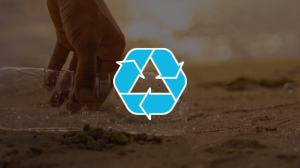Plastic is combining with tar to form a dangerous new pollution called ‘plastitar’
Plastitar is a new environmental threat that results from plastic waste and oil spills.
Forming what looks like regular beach rocks, this newly discovered pollutant has been found on beaches in Vancouver, Spain, Britain, and in the waters near Costa Rica. Plastitar is a potential threat, as it sheds microplastics into the environment and may emit toxins.
Story Preview
Tar balls combine with plastic to create ‘plastitar’. (Universidad de La Laguna)
Black clumps of hardened tar dotted with plastic have been spotted on beaches in Tenerife, with researchers warning the substance is unlike any plastic pollution seen before.The ‘plastitar’ – described as an “unassessed threat” – was spotted in water near the Playa Grande.
Javier Hernandez-Borges, an associate professor of analytical chemistry at the University of La Laguna in Tenerife, told The Guardian: “No longer is the presence of plastic in the environment limited to microplastics or a bottle in the sea.
“Now it’s giving rise to new formations; in this case, one that combines two contaminants.”
Plastitar is formed when oil spills wash ashore as tar balls in the Canaries, and sticks to plastic.
Hernandez-Borges said: “It acts like Play-Doh. And when waves carrying microplastics or any other kind of marine debris crash on to the rocks, this debris sticks to the tar.”
The plastitar was widespread, the researchers said, and may be related to the Canary Islands position along a key shipping lane for oil.
Preview text: Rob Waugh, June 13, 2022, YahooNews.



